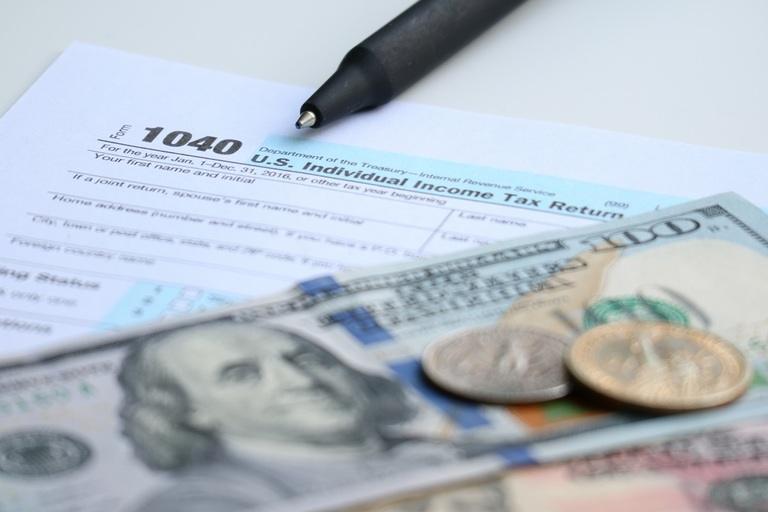
11. Georgia
- State’s ranking: Most Tax-Friendly 🙂
- State income tax: between 1 percent (on the first $1,000 of taxable net income for U.S. citizens who are married and file jointly; on the first $750 for those who file individually; and on the first $500 for those who are married, but file separately) and 6 percent (on taxable income over $10,000 for married couples who file jointly; on taxable income over $7,000 for citizens who file individually; and on taxable income over $5,000 for those who are married, but file separately).
- The average property tax: $1,000 in taxes per $100,000 of assessed home value
- The average state and local sales tax: 7.23 percent (groceries are actually taxable by localities)
- Estate tax/inheritance tax: No/No
Georgia should be on your “best states to retire list.” How so? The Peach State exempts Social Security benefits from state taxes, as well as up to $65,000 of the vast majority of retirement income sources for residents aged 65 or older. However, note that localities can put a tax on groceries.
12. Hawaii
- State’s ranking: Tax friendly 🙂
- State income tax: between 1.4 percent (on taxable income up to $4,800 for couples who are married and file jointly; on up to $2,400 for citizens who are married, but file separately; the same amount goes to individual filers) and 11 percent (on taxable income over $200,000 for those who are married and file jointly; the same amount applies to surviving spouses; on over $400,000 for couples who are married and file separately and, as well as for individual filers)
- The average property tax: $304 in taxes per $100,000 of assessed home value
- The average state and local sales tax: 4.41 percent (the percentage is applied to all types of transactions)
- Estate tax/inheritance tax: Yes/No
In general, Hawaii is known as a costly state. However, this doesn’t apply to retirees. Along with the vast majority of pension income, the Aloha State also exempts Social Security benefits. However, other income sources are taxed; and the upper rate is 11 percent.
When it comes to property tax, Hawaii has the lowest rates in the U.S., and retirees can actually take advantage of certain exemptions from this type of taxes.
13. Idaho
- State’s ranking: Mixed tax situation
- State income tax: between 1.125 percent (on taxable income up to $3,008 for those who are married and file jointly and up to $1,504 for those who file individually) and 6.925 percent (on taxable income of $22,558 or more for married couples filing jointly and $11,279 or more for individuals)
- The average property tax: $796 in taxes per $100,000 of assessed home value
- The average state and local sales tax: 6.03 percent (groceries are taxed)
- Estate tax/inheritance tax: No/No
Idaho taxes all types of income, apart from Railroad Retirement and Social Security benefits. Another good thing is that the upper tax rate (6.925 percent ) is pretty low when compared to others in the country. For seniors who have qualifying public pensions, there’s also a remarkable retirement-benefits deduction.
In the Gem State, groceries are taxable too, but you can get a tax credit consisting of one hundred dollars per individual to counteract them; the credit can raise up to $120 as soon as you turn 65.
14. Illinois
- State’s ranking: Mixed tax situation
- State income tax: Flat 4.95 percent
- The average property tax: $2,408 in taxes per $100,000 of assessed home value
- The average state and local sales tax: 8.78 percent (groceries are actually taxed)
- Estate tax/inheritance tax: Yes/No
Illinois has a mixed tax situation; however, those who are retired here don’t have to pay taxes on Social Security benefits and other income sources for retirement. Another great thing when it comes to living in the Prairie State is that its flat income rate is pretty low at 4.95 percent.
Here comes the not-so-good-news: property taxes in Illinois are hell on earth for seniors. The average property tax rate is a whopping $9,634 per year on a $400,000 house. Most retirees may see the state’s homestead exemption (up to $5,000) as a ray of sunshine, but it’s a relatively small amount of money.
When combined, state and local sales tax rates can go up to 11 percent in some locations. As for your heirs, the Prairie State has an estate tax that actually applies to houses worth $4 million dollars or more.
15. Indiana
- State’s ranking: Mixed tax situation
- State income tax: Flat 3.23 percent
- The average property tax: $907 in taxes per $100,000 of assessed home value
- State sales tax: 7 percent
- Estate tax/inheritance tax: No/No
Despite the fact that Indiana exempts Social Security benefits when it comes to military pensions and other types of pensions such as federal civil-service ones, 401(k) plans, and IRAs, the Hoosier State doesn’t offer full exemptions. Private pensions are a no-no here since they are fully taxable.





